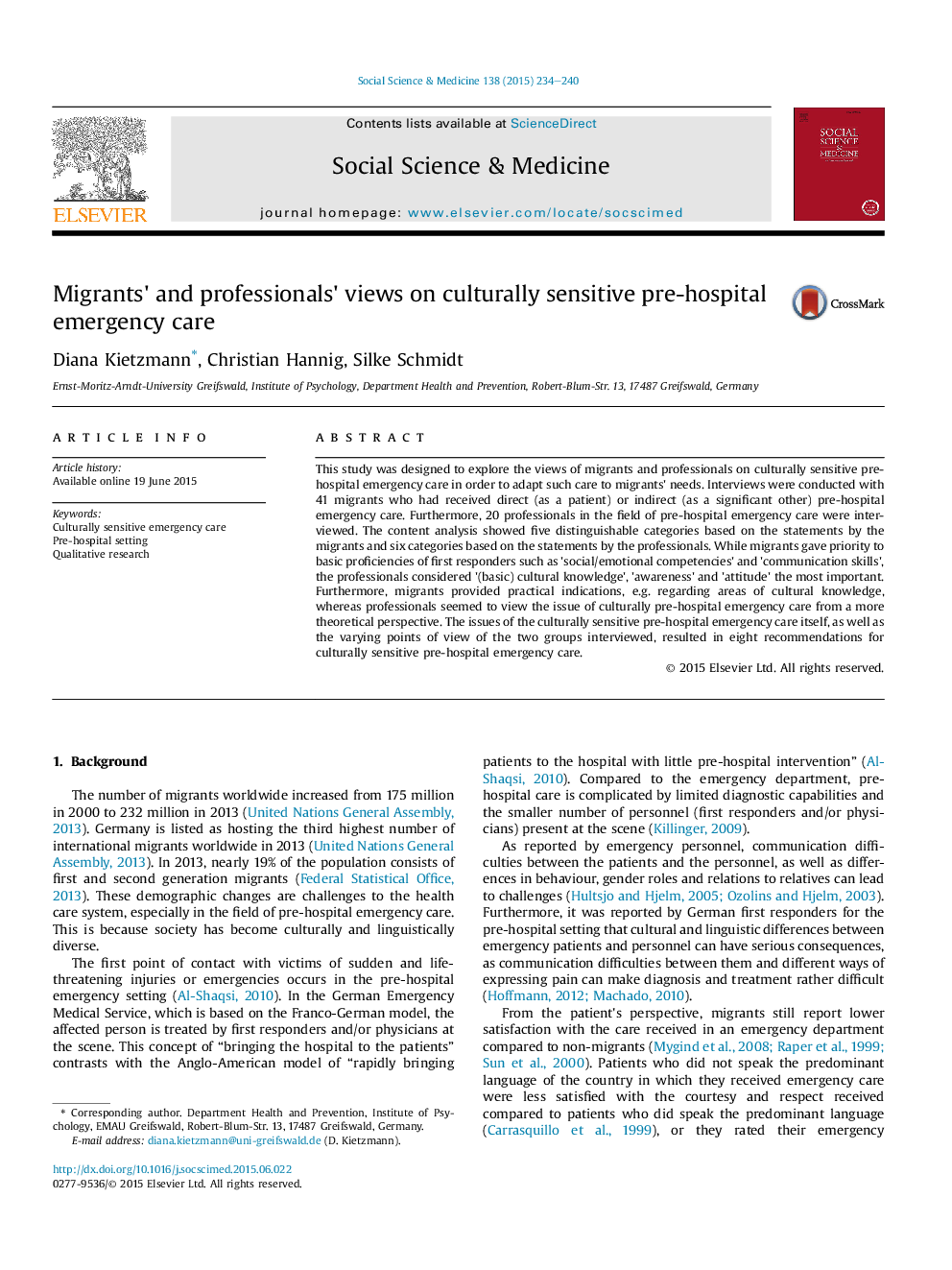| Article ID | Journal | Published Year | Pages | File Type |
|---|---|---|---|---|
| 7332285 | Social Science & Medicine | 2015 | 7 Pages |
Abstract
This study was designed to explore the views of migrants and professionals on culturally sensitive pre-hospital emergency care in order to adapt such care to migrants' needs. Interviews were conducted with 41 migrants who had received direct (as a patient) or indirect (as a significant other) pre-hospital emergency care. Furthermore, 20 professionals in the field of pre-hospital emergency care were interviewed. The content analysis showed five distinguishable categories based on the statements by the migrants and six categories based on the statements by the professionals. While migrants gave priority to basic proficiencies of first responders such as 'social/emotional competencies' and 'communication skills', the professionals considered '(basic) cultural knowledge', 'awareness' and 'attitude' the most important. Furthermore, migrants provided practical indications, e.g. regarding areas of cultural knowledge, whereas professionals seemed to view the issue of culturally pre-hospital emergency care from a more theoretical perspective. The issues of the culturally sensitive pre-hospital emergency care itself, as well as the varying points of view of the two groups interviewed, resulted in eight recommendations for culturally sensitive pre-hospital emergency care.
Keywords
Related Topics
Health Sciences
Medicine and Dentistry
Public Health and Health Policy
Authors
Diana Kietzmann, Christian Hannig, Silke Schmidt,
